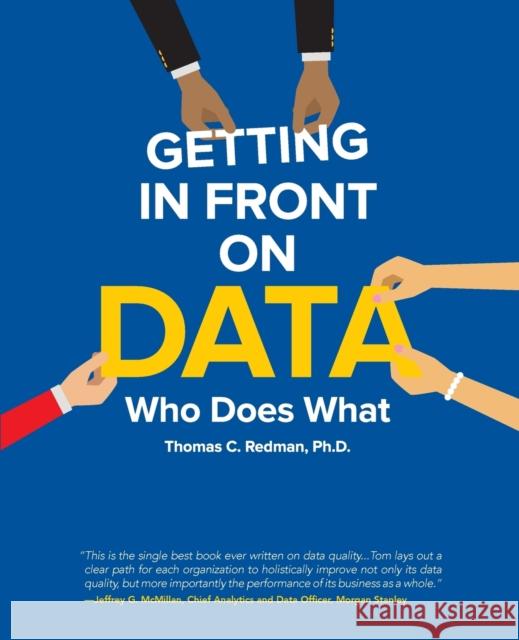Getting in Front on Data: Who Does What » książka
Getting in Front on Data: Who Does What
ISBN-13: 9781634621267 / Angielski / Miękka / 2016 / 190 str.
This book lays out the roles everyone, up and down the organization chart, can and must play to ensure that data is up to the demands of its use, in day-in, day-out work, decision-making, planning, and analytics. By now, everyone knows that bad data extorts an enormous toll, adding huge (though often hidden) costs, and making it more difficult to make good decisions and leverage advanced analyses. While the problems are pervasive and insidious, they are also solvable As Tom Redman, "the Data Doc," explains in Getting in Front on Data, the secret lies in getting the right people in the right roles to "get in front" of the management and social issues that lead to bad data in the first place. Everyone should see himself or herself in this book. We are all both data customers and data creators--after all, we use data created by others and create data used by others. And all of us must step up to these roles. As data customers, we must clarify our most important needs and communicate them to data creators. As data creators, we must strive to meet those needs by finding and eliminating the root causes of error. Getting in Front on Data proposes new roles for data professionals as:
- embedded data managers, in helping data customers and creators complete their work,
- DQ team leads, in connecting customers and creators, pulling the entire program together, and training people on their new roles,
- data maestros, in providing deep expertise on the really tough problems,
- chief data architects, in establishing common data definitions, and
- technologists, in increasing scale and decreasing unit cost.
This book lays out the roles everyone, up and down the organization chart, can and must play to ensure that data is up to the demands of its use, in day-in, day-out work, decision-making, planning, and analytics. By now, everyone knows that bad data extorts an enormous toll, adding huge (though often hidden) costs, and making it more difficult to make good decisions and leverage advanced analyses. While the problems are pervasive and insidious, they are also solvable! As Tom Redman, “the Data Doc,” explains in Getting in Front on Data, the secret lies in getting the right people in the right roles to “get in front” of the management and social issues that lead to bad data in the first place. Everyone should see himself or herself in this book. We are all both data customers and data creators—after all, we use data created by others and create data used by others. And all of us must step up to these roles. As data customers, we must clarify our most important needs and communicate them to data creators. As data creators, we must strive to meet those needs by finding and eliminating the root causes of error. Getting in Front on Data proposes new roles for data professionals as:
- embedded data managers, in helping data customers and creators complete their work,
- DQ team leads, in connecting customers and creators, pulling the entire program together, and training people on their new roles,
- data maestros, in providing deep expertise on the really tough problems,
- chief data architects, in establishing common data definitions, and
- technologists, in increasing scale and decreasing unit cost.











